Moroccan Olive Oil: 7 Ways to Spot Quality
Moroccan Olive oil, often called “liquid gold,” has been a culinary and health staple for centuries. While countries like Spain, Italy, and Greece have traditionally dominated the global market, a new contender is rapidly rising: Moroccan olive oil. Morocco now ranks as the sixth-largest producer worldwide, and its olive oil is quickly gaining recognition as a “golden elixir” celebrated for its rich flavor, impressive health benefits, and remarkable culinary versatility.
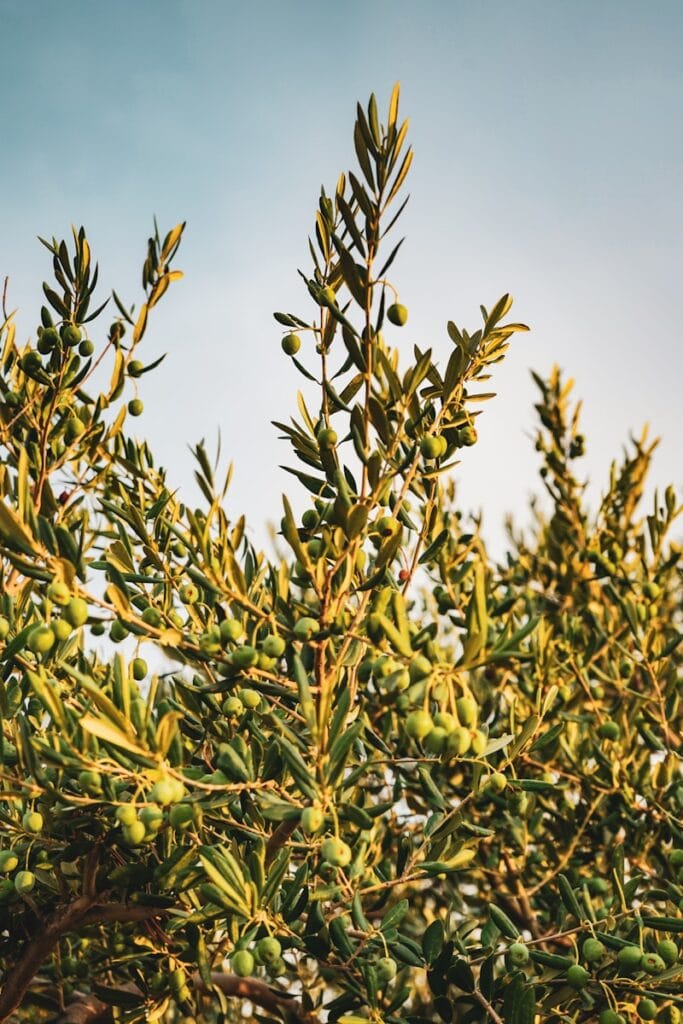
The Distinctive Qualities of Moroccan Olive Oil
What sets Moroccan olive oil apart? It’s a combination of unique geographical advantages, diverse olive varieties, and time-honored production methods.
Unique Terroir and Climate
Morocco’s diverse landscape plays a pivotal role in shaping the character of its olive oil. The majestic Atlas Mountains provide a range of altitudes and micro-climates, creating ideal conditions for olive cultivation. The country’s climate, characterized by hot, dry summers and mild winters, puts just the right amount of environmental stress on the olive trees. This stress, in turn, influences the development of unique flavor profiles and contributes to the high quality of the olives.
Diverse Olive Varieties
While several olive varieties thrive in Morocco, the Picholine olive is particularly noteworthy. This widely used variety produces a bold, fruity oil with subtle hints of nuttiness, making it an excellent choice for crisp salads and delicate fish dishes. Beyond the Picholine, other notable Moroccan varieties include:
- Menara: Known for its strong, robust taste.
- Dahbia: Offers a milder and more delicate flavor.
- Beldi: Often used by premium brands like Mina and Moresh.
The specific growing location—whether coastal groves, mountain orchards, or inland valleys—further influences the oil’s character, resulting in unique oils with distinct aromas and richness.
Traditional Harvesting and Modern Pressing
The journey of olive oil from Morocco begins with the harvest season, typically from October to February. Many Moroccan producers still favor traditional hand-picking methods, which help preserve the quality of the delicate fruit. After harvesting, the olives are swiftly transported to mills for cold-pressing. This crucial method extracts pure oil without excessive heat, ensuring that essential nutrients and the oil’s distinctive flavor are retained. High-quality Moroccan Extra Virgin Olive Oil (EVOO), like that produced by Mina, boasts remarkably low acidity, often less than 0.2-0.3%, which is significantly below the legal requirement for EVOO. This low acidity is a strong indicator of the oil’s purity and freshness.
The Powerhouse of Health Benefits: Why Moroccan Olive Oil Is So Good For You
Beyond its exquisite taste, Moroccan olive oil is a nutritional powerhouse, brimming with compounds that offer extensive health benefits.
Rich in Polyphenols and Antioxidants
One of the most celebrated attributes of Moroccan olive oil is its high concentration of polyphenols. These natural antioxidants, found abundantly in olives, are crucial for protecting the body against damage from free radicals. Olive oil from Morocco is often lauded for its elevated polyphenol content, which can sometimes surpass levels found in olive oils from other countries (with the exception of Spain) and even rival or exceed levels in some Greek and Californian varieties. This high level is possibly due to the environmental stressors faced by olive trees in Morocco, which can stimulate the production of these protective compounds. These potent antioxidants play a vital role in minimizing cellular damage and boosting the body’s natural defenses.
Cardiovascular Health
Consuming olive oil, especially EVOO, is strongly linked to improved cardiovascular health. It’s a key component of the Mediterranean diet, which has been shown to significantly lower the risk of heart disease and protect against stroke. Morocco olive oil contributes to heart health by:
- Lowering blood pressure: Regular consumption can help maintain healthy blood pressure levels.
- Reducing bad cholesterol: Its high content of monounsaturated fats helps reduce low-density lipoprotein (LDL) cholesterol, often referred to as “bad” cholesterol.
- Enhancing immune function: Monounsaturated fats also improve the absorption of fat-soluble vitamins, further boosting the immune system.
Anti-inflammatory Properties
Moroccan olive oil contains oleocanthal, a natural compound that acts similarly to anti-inflammatory medications like ibuprofen. This makes it a valuable ally in combating inflammatory conditions such as arthritis and autoimmune diseases, reducing inflammation throughout the body and potentially preventing various chronic illnesses.
Brain Health and Cognitive Function
Emerging research suggests that Moroccan olive oil, particularly varieties rich in oleocanthal or Picholine olives, may offer significant benefits for brain health. Studies indicate it could help prevent or slow the progression of Alzheimer’s disease by protecting the brain against free radical damage and reducing inflammation. Regular consumption is also linked to improved mood and overall cognitive function.
Diabetes Prevention and Management
For those at risk of or managing diabetes, Moroccan olive oil can be a beneficial dietary addition. Research suggests that it can delay the onset of type 2 diabetes, especially in high-risk women. It achieves this by boosting insulin sensitivity and reducing inflammation linked to insulin resistance, making it a valuable part of a diabetes-conscious diet.
Bone Health
The polyphenols found in Moroccan olive oil do more than just protect cells; they also contribute to stronger bones. These compounds can help increase bone mineral density, offering a significant benefit for older adults at risk for osteoporosis.
Immune System Boost
With its rich profile of antioxidants, vitamins (like Vitamin E), and polyphenols, Moroccan EVOO stands out as one of the best foods for fortifying the body’s immune response. Regular consumption can help combat illness and keep your defenses strong, particularly during colder months.
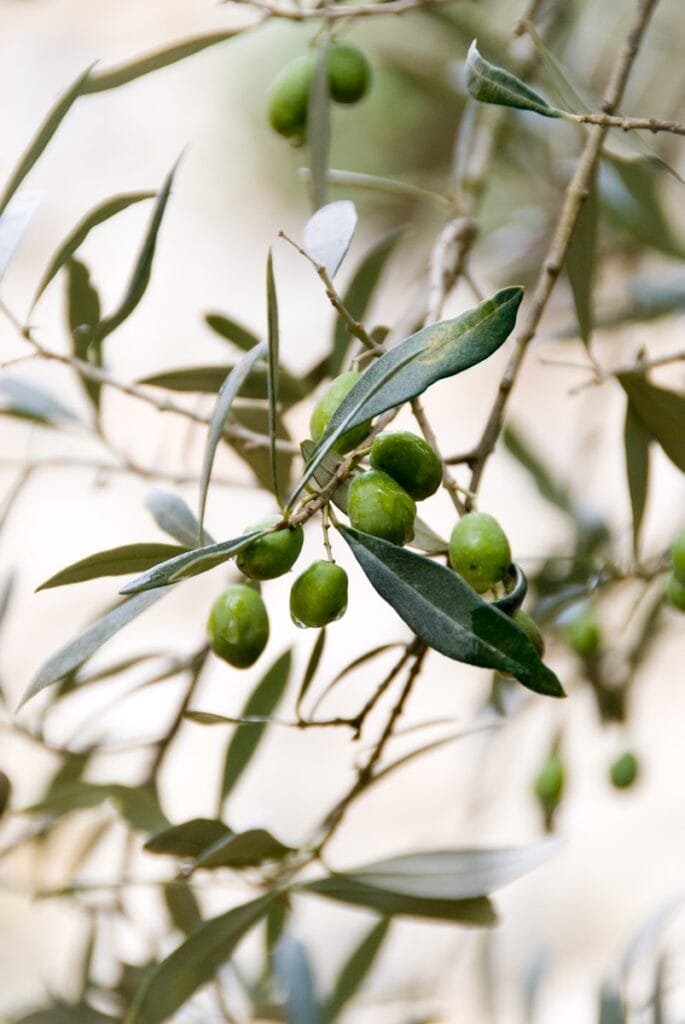
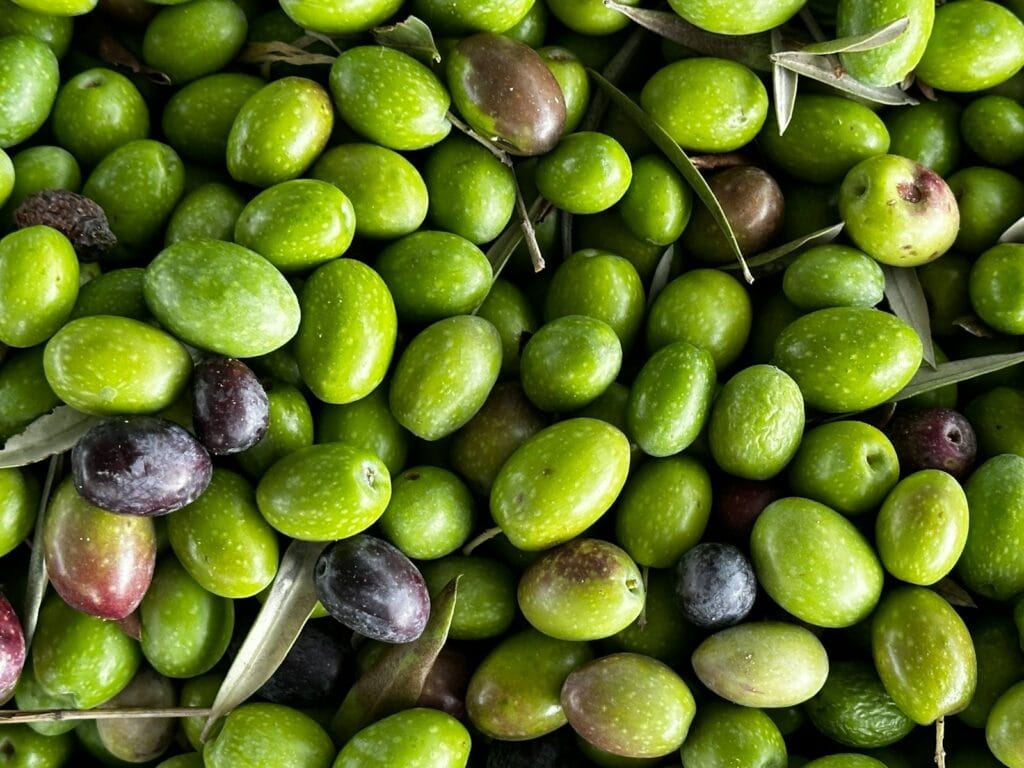
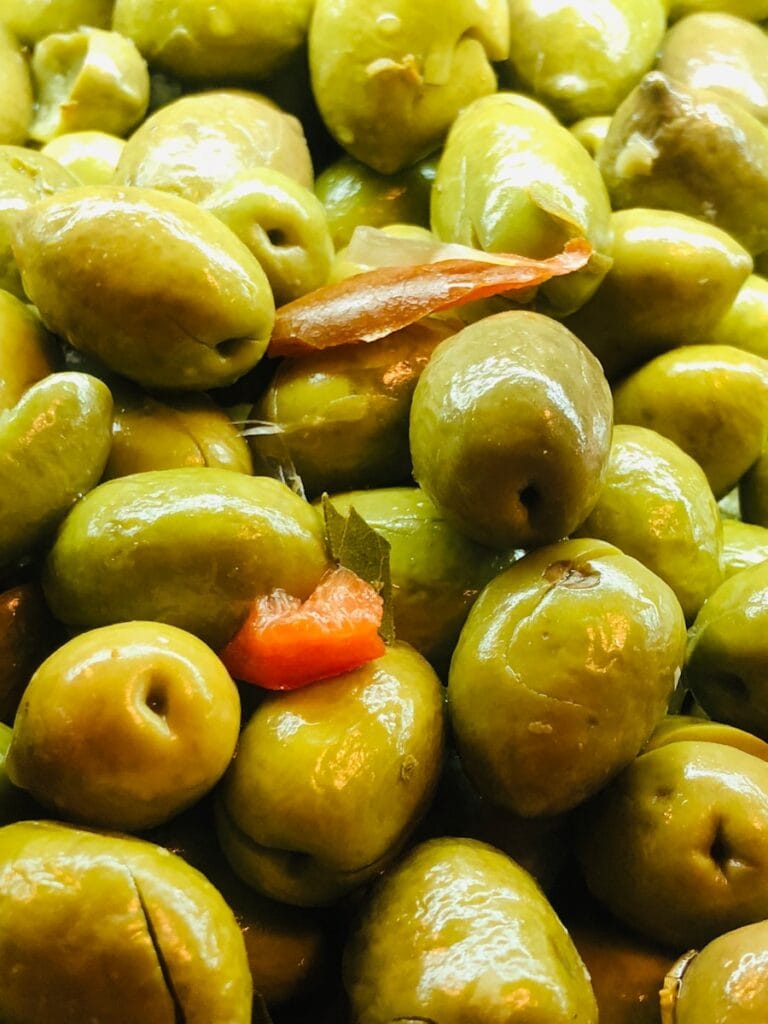
Culinary Versatility: Enhancing Every Dish
The distinctive flavor profile of Moroccan olive oil makes it an incredibly versatile ingredient in the kitchen, elevating both everyday meals and gourmet creations.
Distinctive Flavor Profile
Moroccan olive oil offers a unique sensory experience. Its flavor is typically described as fruity, with a pleasant bitterness and a subtle pungency that provides a delightful kick. The aroma is often fresh and earthy, sometimes with notes of green almond or freshly cut grass. This balanced flavor profile enhances dishes without overpowering them, allowing other ingredients to shine.
Wide Range of Uses
The culinary applications of Moroccan olive oil are virtually limitless:
- Everyday Cooking: It’s ideal for sautéing vegetables, roasting meats, and even baking.
- Cold Applications: Its rich flavor truly shines when drizzled over fresh salads, used for dipping crusty bread, or as the base for homemade salad dressings.
- Authentic Moroccan Cuisine: It’s an indispensable ingredient in traditional Moroccan dishes, providing the authentic base for flavorful tagines, spicy harissa, fluffy couscous, and vibrant salads like taktouka and zaalouk.
- Surprising Applications: For the adventurous cook, Moroccan olive oil can even be incorporated into unique desserts, such as a moist olive oil cake or even a creamy olive oil ice cream, where its fruity notes add a surprising depth of flavor.
When cooking with Moroccan EVOO, remember its relatively low smoke point (under 375°F for EVOO), making it best suited for low-to-medium heat cooking or finishing dishes.
Explore Morocco Your Way: The Traveler's Guide to Authentic Experiences
Beyond the Kitchen: Moroccan Olive Oil for Beauty
The benefits of Moroccan olive oil extend beyond the plate, offering natural solutions for skin and hair care.
Natural Moisturizer
Rich in anti-aging antioxidants like squalene, Moroccan olive oil serves as an excellent natural moisturizer for skin, hair, and nails. It helps to hydrate and nourish, leaving them soft and supple.
Hair and Scalp Treatment
For hair, it can be used as a pre-shampoo treatment to deeply condition and add shine, or a few drops can be applied to dry ends to tame frizz and add luster.
Makeup Remover & Skin Benefits
Its effectiveness in dissolving waxy makeup makes it a gentle yet powerful makeup remover. Regular use can also help prevent signs of aging by providing essential nutrients and antioxidant protection.
Important Clarification
It’s crucial to distinguish between edible Moroccan olive oil and other Moroccan-origin oils or brand names that might sound similar. Argan oil, for instance, is another celebrated Moroccan oil, but it’s derived from the argan tree and has different properties and uses, primarily in cosmetics. Similarly, brand names like “Moroccanoil” predominantly refer to hair and beauty products that may or may not contain actual edible olive oil. Always check the ingredients list if you’re looking for edible olive oil from Morocco for culinary purposes.
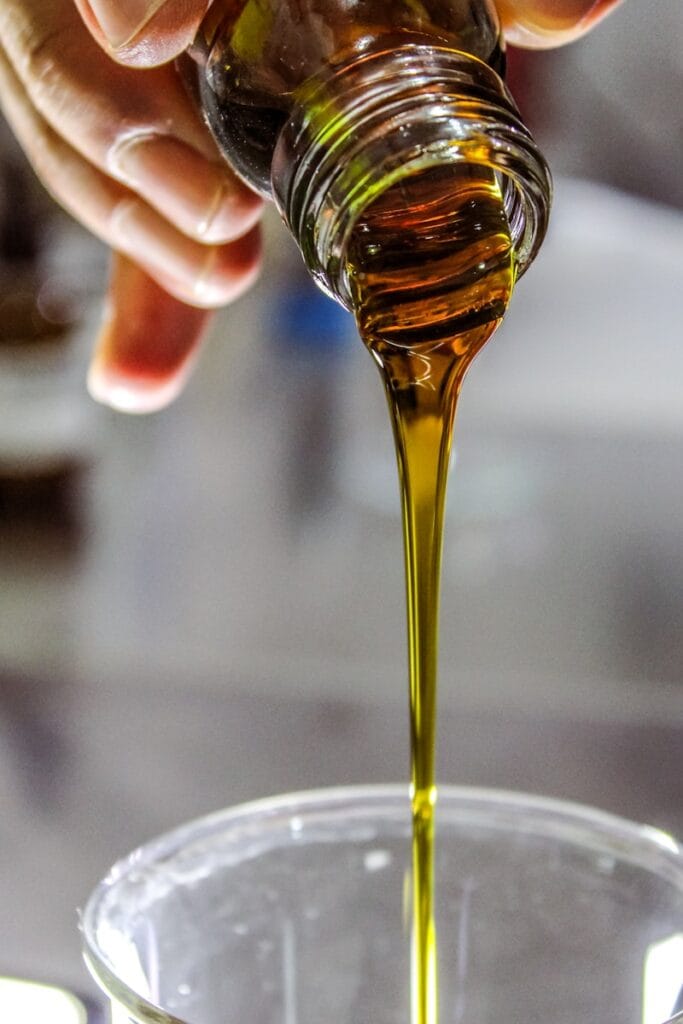
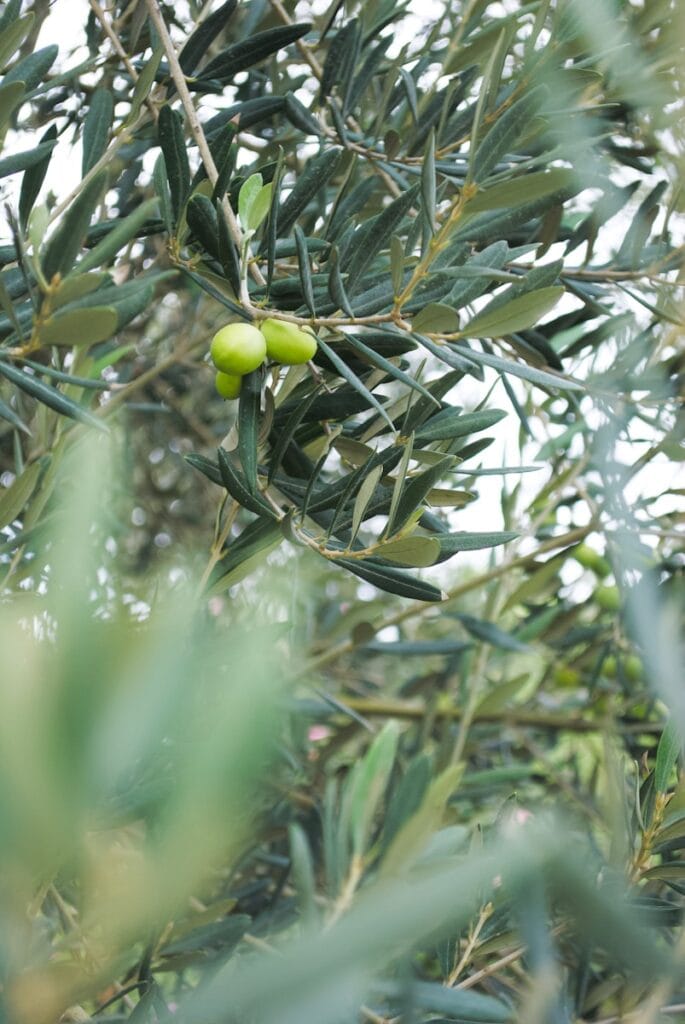
Frequently Asked Questions (FAQ) about Moroccan Olive Oil
Q1: What makes Moroccan olive oil unique?
Moroccan olive oil is unique due to its distinctive terroir (the combination of climate, soil, and topography, particularly near the Atlas Mountains), diverse native olive varieties like the Picholine, and adherence to traditional hand-picking and cold-pressing methods. These factors contribute to its unique flavor profile, often described as fruity with a pleasant pungency, and its high concentration of beneficial polyphenols.
Q2: What are the main health benefits of Moroccan olive oil?
The main health benefits of Moroccan olive oil include its high content of antioxidants (polyphenols) and monounsaturated fats. These contribute to improved cardiovascular health (lowering blood pressure and bad cholesterol), strong anti-inflammatory properties (due to compounds like oleocanthal), enhanced brain health, potential diabetes prevention and management, increased bone mineral density, and a boosted immune system.
Q3: How does Moroccan olive oil compare to olive oils from other regions like Spain, Italy, or Greece?
Moroccan olive oil often boasts a comparable or even higher polyphenol content than oils from other major producing regions, making it exceptionally beneficial for health. While Spanish, Italian, and Greek olive oils are well-established, olive oil from Morocco offers a distinct flavor profile and high quality, making it a strong contender in the global market. Its unique terroir and specific olive varieties provide a different, yet equally excellent, experience.
Q4: Can Moroccan olive oil be used for all types of cooking?
Moroccan Extra Virgin Olive Oil is highly versatile and can be used for a wide range of culinary applications, from cold uses like salad dressings, dipping, and drizzling over finished dishes to low-to-medium heat cooking such as sautéing, roasting, and baking. However, due to its relatively lower smoke point compared to refined oils (around 375°F for EVOO), it’s generally not recommended for high-heat frying.
Q5: How can I ensure I’m buying high-quality Moroccan Extra Virgin Olive Oil?
To ensure you’re buying high-quality Moroccan Extra Virgin Olive Oil, look for labels that specify “Extra Virgin” and “cold-pressed.” Prefer oils packaged in dark glass bottles or opaque containers to protect them from light. Check for a recent harvest date and look for transparency from the producer regarding the source and production methods. Brands like Mina and Morocco Gold are good examples of high-quality olive oil from Morocco
Conclusion: Embrace the Moroccan Difference
Moroccan olive oil stands out as a true “golden elixir,” offering a compelling combination of superior health benefits, a unique and versatile flavor profile, and a rich culinary heritage. Its high polyphenol content, heart-healthy monounsaturated fats, and anti-inflammatory properties make it a valuable addition to any diet focused on well-being. From drizzling over salads to enriching traditional tagines, its distinctive taste enhances every dish.
We encourage you to incorporate high-quality Moroccan olive oil into your daily diet. Discover its remarkable benefits for yourself and experience the unique “Moroccan difference” in your kitchen and for your health.
